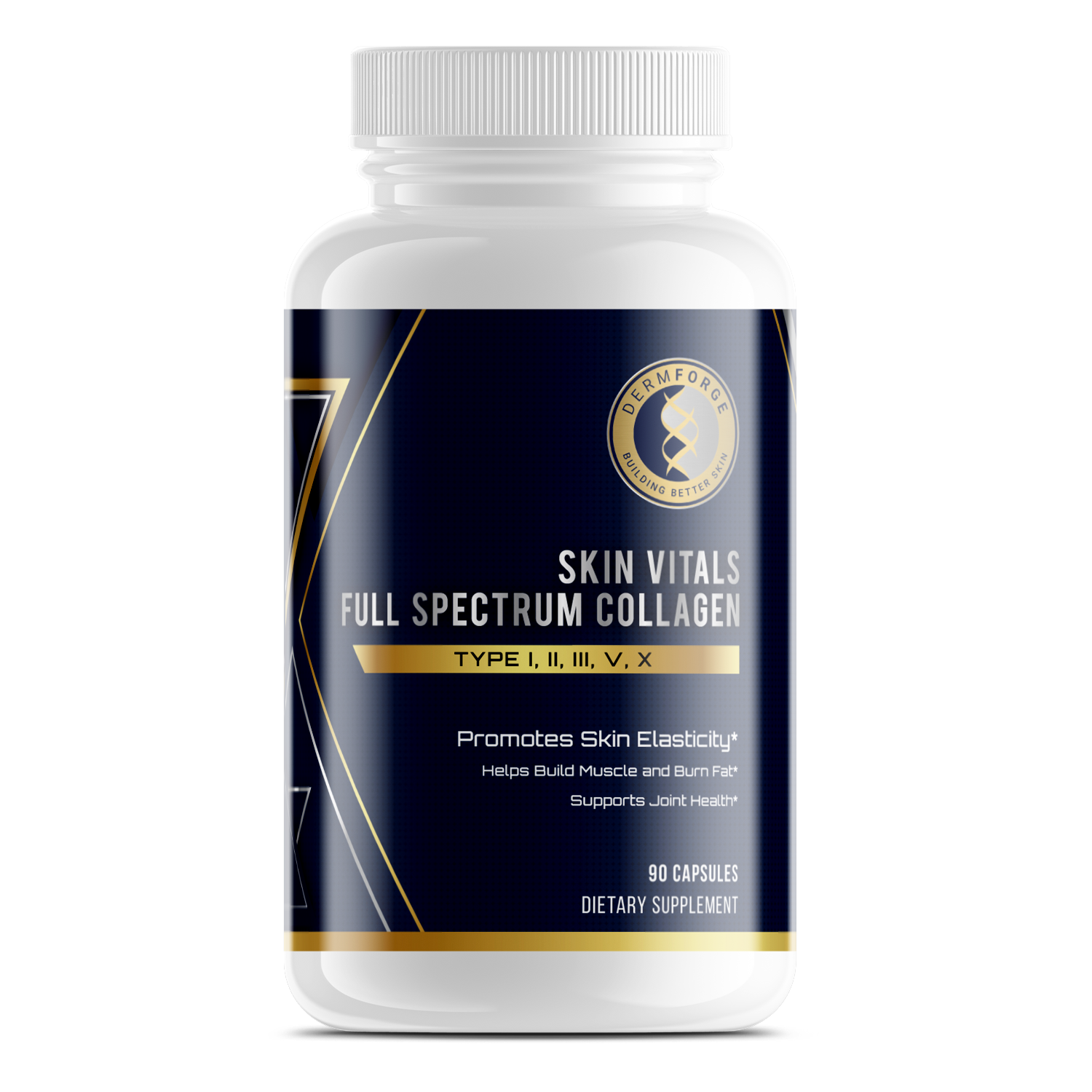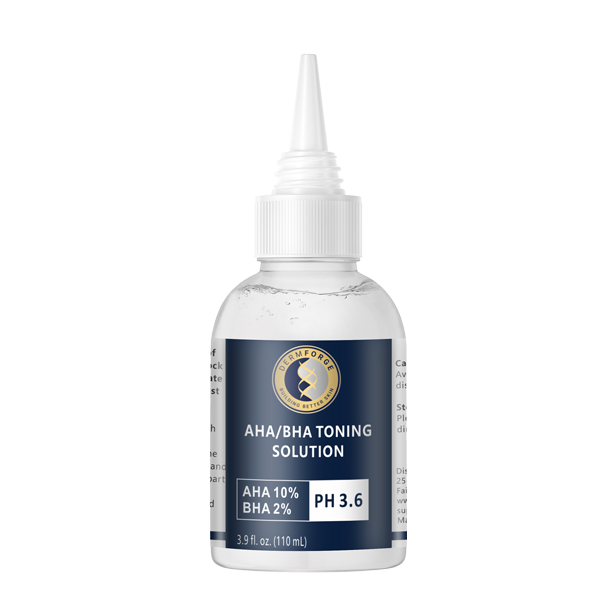In the realm of skincare, the debate over the necessity of nighttime sunscreen continues to perplex many. While the importance of sunscreen during the daytime is widely accepted and ingrained in our skincare routines, the concept of using sunscreen at night sparks controversy. To shed light on this topic, we will delve into the basics of sunscreen, its role in skin protection, the science behind it, and expert opinions. Armed with this knowledge, you'll be able to make an informed decision about whether nighttime sunscreen is a necessary addition to your skincare regimen.
Understanding the Basics of Sunscreen
Sunscreen is a topical product designed to protect the skin from the harmful effects of the sun's ultraviolet (UV) radiation. It acts as a shield, preventing UV rays from penetrating the skin and causing damage. Broadly speaking, there are two types of sunscreen: physical and chemical.
Physical sunscreens, typically containing ingredients like zinc oxide or titanium dioxide, work by deflecting and scattering UV rays away from the skin. On the other hand, chemical sunscreens use organic compounds, such as avobenzone or octinoxate, to absorb and convert UV radiation into heat, which is then released from the body. Both types of sunscreens have been extensively studied and are considered effective in protecting the skin from the harmful effects of the sun. Now let's delve deeper into the science behind sunscreen and its role in skin protection.
When selecting a sunscreen, it is important to consider the Sun Protection Factor (SPF) indicated on the packaging. SPF measures the level of protection the sunscreen provides against UVB rays, which are primarily responsible for causing sunburn and skin cancer. The higher the SPF number, the greater the protection against UVB rays. However, it is essential to note that SPF does not measure protection against UVA rays, which also contribute to skin damage and aging.
Furthermore, it is recommended to apply sunscreen generously and frequently, especially when spending extended periods outdoors. A common guideline is to use at least a shot glass amount of sunscreen for the entire body and to reapply every two hours or immediately after swimming or sweating. Proper application ensures that the sunscreen forms a uniform layer on the skin, maximizing its protective benefits.
The Science Behind Sunscreen
It's essential to understand how sunscreen works to comprehend its significance in safeguarding the skin. When applied to the skin, sunscreen forms a thin protective layer that acts as a barrier. The active ingredients in sunscreen either reflect, scatter or absorb UV rays to prevent them from penetrating the skin.
UV radiation, particularly UVA and UVB rays, can cause various skin issues, including sunburn, premature aging, and an increased risk of skin cancer. By shielding the skin from these harmful rays, sunscreen plays a crucial role in preventing these adverse effects.
Furthermore, sunscreen usage has been linked to a reduced risk of developing melanoma, one of the deadliest forms of skin cancer. Studies have shown that regular sunscreen application can effectively decrease the likelihood of melanoma, highlighting the importance of incorporating sunscreen into our daily skincare routines.
It's important to note that sunscreen comes in various forms, including lotions, sprays, gels, and sticks. Each formulation offers unique benefits and application methods to cater to different preferences and skin types. For example, sunscreen lotions are versatile and easy to apply, making them ideal for everyday use. On the other hand, sunscreen sprays are convenient for reapplication on the go and can cover large areas quickly.
When selecting a sunscreen, it's crucial to consider its sun protection factor (SPF) value. SPF indicates the level of protection the sunscreen offers against UVB rays. Higher SPF values provide greater protection, but it's essential to reapply sunscreen every two hours, regardless of the SPF level, for optimal effectiveness. Additionally, broad-spectrum sunscreens protect against both UVA and UVB rays, offering comprehensive sun protection.
The Role of Sunscreen in Skin Protection
During the daytime, when the sun is out and UV radiation is at its peak, using sunscreen is widely recommended. The harmful effects of UV rays on the skin are well-documented, making sunscreen an indispensable part of sun protection.
Applying sunscreen before venturing outdoors acts as the first line of defense against UV radiation. It helps to minimize the skin's exposure to harmful rays and significantly reduces the risk of sunburn, photoaging, and skin cancer.
Beyond its protective benefits, sunscreen also aids in maintaining the overall health and appearance of the skin. By shielding the skin from the damaging effects of UV radiation, sunscreen helps to preserve its elasticity, prevent the formation of wrinkles, and keep the skin looking youthful and refreshed.
As the importance of daytime sunscreen is well-established, let's explore the concept of nighttime sunscreen and its potential benefits.
While daytime sunscreen is crucial for protecting the skin from UV damage during outdoor activities, nighttime sunscreen can offer unique advantages for overnight skincare. Nighttime sunscreen, also known as a night cream with SPF, provides a protective barrier against indoor artificial lights that emit low levels of UV radiation, which can still contribute to skin damage over time.
Moreover, using nighttime sunscreen can help counteract the effects of free radicals that are generated by various environmental stressors during the day. These free radicals can lead to oxidative stress, premature aging, and skin dullness. By incorporating nighttime sunscreen into your skincare routine, you can support the skin's natural repair processes and enhance its resilience against daily aggressors.
The Nighttime Sunscreen Concept
Contrary to popular belief, the concept of nighttime sunscreen goes beyond protecting the skin from the moon's rays. It revolves around the idea that our skin is exposed to other sources of radiation even when the sun sets, such as indoor lighting and electronic devices.
Proponents of nighttime sunscreen argue that consistent use can shield the skin from these external factors. They claim that since UV radiation is not the only damaging element our skin encounters, applying sunscreen at night can provide additional protection.
Recent studies have suggested that certain ingredients in nighttime-specific sunscreens, such as antioxidants and peptides, may have reparative effects on the skin while we sleep. These formulations are designed to work in harmony with the body's natural nighttime repair processes, potentially enhancing overall skin health.
However, while the theory may seem plausible, skeptics raise valid concerns about the practicality and efficacy of using sunscreen during nighttime. Let's weigh the pros and cons to gain a comprehensive understanding.
The Pros and Cons of Nighttime Sunscreen
Pros
Additional Protection: Nighttime sunscreen may offer additional protection against indoor lighting and electronic device radiation, potentially reducing the risk of skin damage.
Prevention of Premature Aging: Nighttime sunscreen can help delay the onset of premature aging by minimizing the cumulative effects of multiple sources of radiation.
Consistency in Routine: Incorporating nighttime sunscreen into your skincare routine ensures a more comprehensive and consistent approach to protecting your skin.
Adding to the benefits of nighttime sunscreen, it's important to note that the skin undergoes a reparative and regenerative process while we sleep. By applying sunscreen before bedtime, you provide a shield that helps safeguard this delicate nighttime renewal phase, aiding in maintaining skin health.
Cons
Impaired Skin Regeneration: Some experts argue that the use of sunscreen at night can hinder the skin's natural regenerative processes, potentially disrupting its ability to repair and renew.
Possible Skin Sensitivity: Continuous use of sunscreen, particularly chemical sunscreens, may lead to skin sensitization or irritation in some individuals.
Feasibility: Applying sunscreen at night may not be practical for everyone, as it adds an extra step to an already elaborate skincare routine.
While the concerns regarding impaired skin regeneration are valid, it's essential to consider that using a lightweight, non-comedogenic nighttime sunscreen can mitigate these effects. Dermatologists often recommend formulations that are specifically designed for overnight use to address these concerns.
Considering these pros and cons, it becomes clear that the topic of nighttime sunscreen is indeed multifaceted. Let's dive deeper into the perspectives of dermatologists and cosmetic scientists to gather insights from the experts.
Expert Opinions on Nighttime Sunscreen
Dermatologists' Views on Nighttime Sunscreen
Dermatologists generally advise incorporating nighttime skincare products that contain ingredients like antioxidants, retinol, or hyaluronic acid rather than solely relying on sunscreen. These ingredients have been proven to benefit the skin's health and can complement your nighttime skincare routine.
While a consensus on the necessity of nighttime sunscreen among dermatologists is yet to be reached, it's worth noting that experts emphasize the importance of individualized skincare approaches. Personalizing your skincare routine based on your skin type, concerns, and lifestyle is key to achieving optimal results.
Cosmetic Scientists on Nighttime Sunscreen
Cosmetic scientists argue that the efficacy of sunscreen active ingredients can be compromised when exposed to light. They suggest that using sunscreen specifically formulated for nighttime use may address this concern, as these products are designed to withstand exposure to indoor lighting and electronic devices.
However, the notion of nighttime-specific sunscreen remains a relatively novel concept within the field, and more research is needed to substantiate its effectiveness and long-term benefits.
Making an Informed Decision
As with any skincare decision, making an informed choice about whether to use nighttime sunscreen requires careful consideration of various factors.

Factors to Consider When Using Nighttime Sunscreen
1. Individual Needs: Assess your skin type, lifestyle, and level of exposure to different sources of radiation to determine if nighttime sunscreen aligns with your specific needs.
2. Product Formulation: Look for night-specific sunscreens or alternative nighttime skincare products that maximize the benefits and minimize potential drawbacks.
3. Skin Sensitivity: If you have sensitive skin, opt for gentle formulations that are less likely to cause irritation or adverse reactions.
4. Professional Guidance: Consult with a dermatologist or skincare expert who can provide personalized advice based on your unique circumstances.
Personalizing Your Skin Care Routine
Ultimately, finding the skincare routine that suits your needs and preferences is a highly individualized process. Whether you choose to include nighttime sunscreen or not, it's important to prioritize sun protection during the day by using broad-spectrum sunscreen, seeking shade when necessary, and wearing protective clothing.
The debate surrounding nighttime sunscreen will likely continue as new research emerges, shedding light on its potential benefits or limitations. Remember, the most crucial aspect of skin care is to be mindful of your skin's needs and to make informed decisions based on expert advice and your own experience.
Conclusion
In conclusion, the necessity of nighttime sunscreen remains a subject of debate in the skincare community. While daytime sunscreen is indispensable in protecting the skin from the harmful effects of UV radiation, the significance of nighttime sunscreen is less established. Proponents argue that it can provide additional protection, while skeptics question its practicality and efficacy. Understanding the basics of sunscreen, its role in skin protection, and the perspectives of experts allows us to make informed decisions about whether to incorporate nighttime sunscreen into our skincare routines. By personalizing our skincare and considering individual needs, we can ensure optimal care and protection for our skin.
For more information about personalized skincare, check out DermForge’s website. They have a wide range of products, including LED masks and vitamins, to help enhance your morning and nighttime skincare routines.






